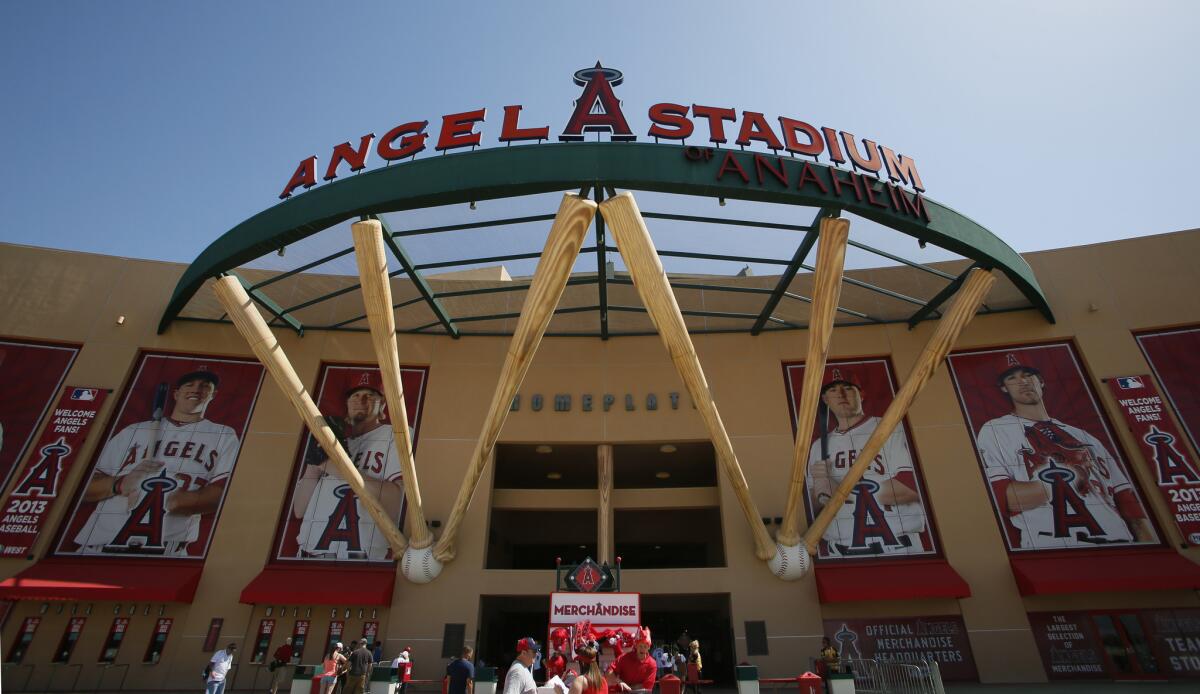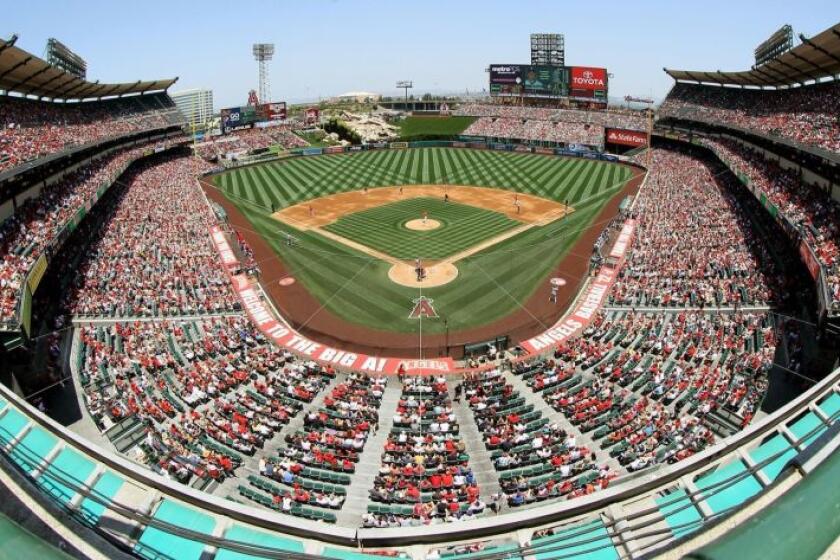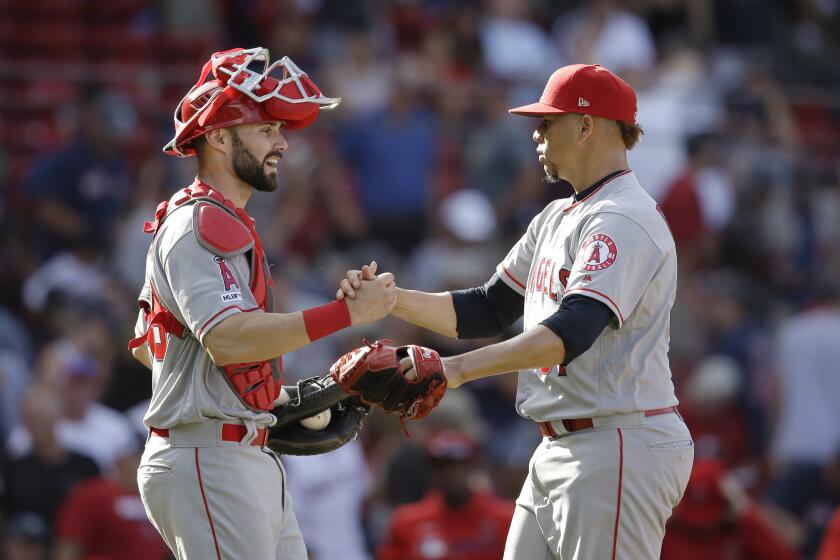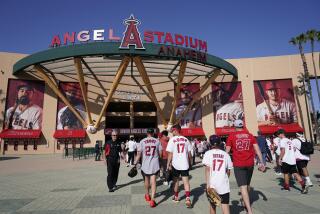Angels lease talks: Mayor insists team pays ‘market prices’ for stadium land

- Share via
The Angels will have to pay market rate to buy or lease any of the land around Angel Stadium, the city’s mayor said Friday.
On the surface, that statement seems straightforward. The last round of negotiations between the city and team collapsed in part because of public protest over Anaheim’s offer to lease the land to Angels owner Arte Moreno for $1 per year.
However, when the Anaheim City Council discusses the Angels negotiations in its Tuesday meeting, how the city chooses to define market value likely will be at issue.
The city has not released the information included in its just-obtained appraisal. In 2014, an appraisal valued the 155-acre site at $225 million if the Angels stayed in the stadium and leased the parking lots for development and $325 million if the ballpark were demolished and the entire property sold for development.
“I will insist that any land sales or leases be at market prices,” mayor Harry Sidhu said in an op-ed posted on the city website and printed in the Orange County Register, “reflecting ongoing baseball use, development we’re likely to see and any requirements we may ask for with the land.”
As the Angels prepare to negotiate a potential new lease with Anaheim, they’re making one thing clear: Their name will remain the Los Angeles Angels.
Sidhu suggested the land could be used for a mix of homes, restaurants, shops, offices and hotels. He appeared to acknowledge the city could realize maximum value for the land by selling it all for housing, although he said it would be “shortsighted” to do so because other uses would bring recurring tax revenue to the city.
“You’ll hear some argue for unrealistic prices,” he said, “based on what we might see if we sold all of the land for housing.”
The City Council appears to have taken its control over that option off the table even before the start of negotiations, however. What was widely understood to be a one-year lease extension turned out to be a one-year extension of the Angels’ opt-out clause; the language on the city website has been updated to reflect that since the issue arose last week.
The Angels could decide to play out their current lease through 2029, with its requirement for 12,500 on-site parking spaces. That requirement would stand even if the city sells or leases part of the parking lot to outside developers, limiting the amount of land available for development.
The current lease also would give the Angels veto rights over any housing on the property, since the lease limits parking lot uses to shops, restaurants, hotels, offices, entertainment and exhibition facilities, a youth sports facility, and a professional football stadium. (The NFL rejected the city’s overtures.)
Newly acquired Angels catcher Max Stassi and his backups contribute next to nothing with the bat, but GM Billy Eppler focuses on their defensive contributions.
And, in order to sell the land for maximum value, the city would need to kick out the Angels next year and knock down the stadium. The city cannot play that card in negotiations since the Angels now have the right to stay in the stadium for another decade.
None of this matters, of course, if the Angels and Anaheim strike a deal, which Sidhu has said is the city’s intent. Councilman Jose Moreno, who has challenged Sidhu on his approach to the Angels’ negotiations, also said he would like to strike a deal with the team.
Moreno, who is not related to the Angels’ owner, said he is “leaning” toward selling the stadium and surrounding land to the Angels, so the city can get out of the stadium business and the recurrent arguments about what constitutes a fair lease. He also said he believes Sidhu has adopted a “whatever it takes” approach to keeping the Angels.
Moreno said he would not take that approach.
“San Diego did not go into bankruptcy when the Chargers left,” he said.
More to Read
Go beyond the scoreboard
Get the latest on L.A.'s teams in the daily Sports Report newsletter.
You may occasionally receive promotional content from the Los Angeles Times.













